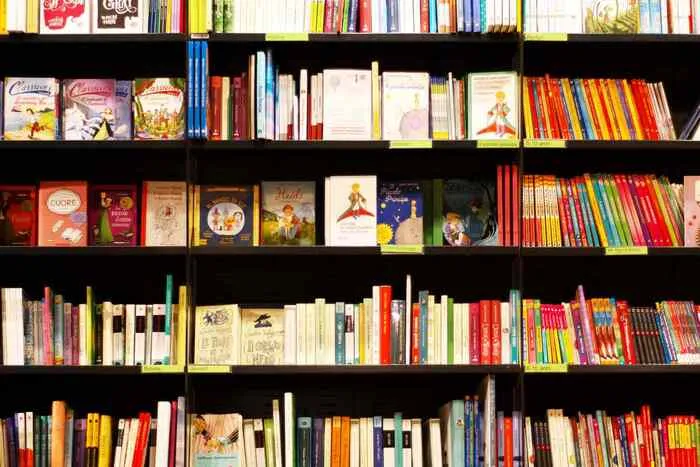In the ever-evolving world of literature and book publishing, the classics have long held sway, but the horizon is expanding at an unprecedented rate. Beyond the timeless works that have defined literary canons, a new wave of emerging trends is reshaping how stories are told, shared, and consumed. The traditional notion of literature as bound by the covers of a printed book is undergoing a metamorphosis, embracing the dynamic possibilities of the digital age.
This transformative era is characterized not only by the evolution of storytelling but also by a fundamental shift in the relationship between authors, publishers, and readers. In an age where technology intertwines seamlessly with our daily lives, literature is breaking free from the constraints of the page. The rise of digital narratives, interactive storytelling, and multimedia experiences is not merely a technological evolution but a reimagining of the very fabric of storytelling.
Authors are no longer confined to linear narratives; they are crafting immersive worlds where readers actively participate in shaping the course of the story. This shift is transforming literature from a solitary act of consumption into a communal and interactive experience, fostering a new kind of literary engagement that transcends the boundaries of traditional storytelling.
Digital Narratives and Interactive Experience
One of the most notable shifts in literature is the rise of digital narratives and interactive storytelling, marking a seismic departure from traditional linear storytelling. With the advent of technology, authors are not just writing stories but crafting immersive experiences that transcend the boundaries of the written word. The exploration of multimedia elements, including audio, video, and interactive formats, has become a playground for literary experimentation.
E-books, once a simple digital replication of their print counterparts, have evolved into dynamic and multi-sensory experiences. Authors and publishers are leveraging technology to create enriched narratives where readers can hear the characters’ voices, see vivid landscapes through embedded videos, and actively participate in decision-making through interactive elements.
This convergence of technology and storytelling is fostering a deeper connection between readers and narratives, as readers become active participants rather than passive observers. Virtual and augmented reality technologies are adding another layer to this transformation. These immersive technologies are not just enhancing the reading experience; they are revolutionizing it.
Readers can now step inside the worlds imagined by authors, virtually walking through the settings, interacting with characters, and experiencing the narrative in a more visceral way. The once clear distinction between fiction and reality is blurred, creating a fusion of storytelling and lived experience.
Diverse Voices and Inclusive Storytelling
In recent years, there has been a growing emphasis on diverse voices and inclusive storytelling. Authors from underrepresented communities are gaining prominence, bringing fresh perspectives and authentic narratives to the forefront. Publishers are increasingly recognizing the importance of diverse stories, not only as a reflection of society but also as a means of expanding their audience. This trend is fostering a richer tapestry of voices in literature, allowing readers to explore a wide array of experiences and perspectives.
This movement towards inclusivity extends beyond the content of the stories to the very structures of the publishing industry. Publishing houses are actively seeking diverse talent in their editorial, marketing, and leadership teams, recognizing that a multiplicity of voices at every level enriches the industry as a whole. Initiatives are being implemented to mentor and support emerging writers from marginalized backgrounds, ensuring their voices are not only heard but also given the platform they deserve.
Moreover, book festivals and literary events are increasingly prioritizing diversity in their programming, providing a platform for authors who have historically been underrepresented. This shift not only broadens the literary landscape but also encourages a more engaged and informed readership. As readers encounter narratives from various cultural, ethnic, and social perspectives, they gain a deeper understanding of the human experience and develop a more profound empathy for the diverse world around them.
Self-Publishing and Independent Authors
The traditional gatekeepers of the publishing industry are facing formidable competition from the rise of self-publishing and independent authors. Thanks to platforms like Amazon Kindle Direct Publishing and other self-publishing avenues, authors can now bypass traditional publishing houses, retaining more control over their work and reaching global audiences with ease.
This democratization of publishing has unleashed a flood of new voices, genres, and styles, challenging the established norms and opening up new possibilities for literary exploration. The power dynamic between authors and publishers has shifted significantly in favor of the creators. Authors not only retain creative control but also benefit from more favorable financial arrangements.
Traditional publishing contracts often involve significant cuts for publishers, leaving authors with a smaller share of the profits. In contrast, self-publishing allows authors to retain a larger percentage of their earnings, providing a direct and often more lucrative connection between their work and its financial success.
Moreover, the rise of self-publishing has led to the discovery of niche markets and unconventional genres that might have been overlooked by traditional publishers. Authors are now free to experiment with innovative ideas, niche subjects, and unique storytelling approaches that might not conform to mainstream expectations. This has resulted in a literary landscape that is more diverse, eclectic, and responsive to the varied tastes of readers worldwide.
Blockchain Technology and Decentralized Publishing
The integration of blockchain technology is disrupting traditional publishing models by introducing decentralized and transparent systems. Blockchain, a decentralized and distributed ledger, holds immense potential to revolutionize the way intellectual property is managed in the literary world. Authors, often at the mercy of complex contractual arrangements, can now leverage smart contracts on the blockchain to secure their rights, ensuring that they receive fair compensation for their creations.
These self-executing contracts automate royalty payments, eliminating delays and disputes that have historically plagued the traditional publishing landscape. Furthermore, blockchain’s tamper-proof nature provides an immutable record of ownership, safeguarding against unauthorized alterations or disputes over authorship. This addresses longstanding concerns about plagiarism and copyright infringement, creating a secure and transparent environment for authors and publishers alike.
As blockchain gains traction in the publishing industry, it acts as a catalyst for positive change, fostering a more equitable and efficient ecosystem. Authors find themselves liberated from the constraints of traditional publishing contracts, gaining greater control over their intellectual property and financial transactions. Publishers, in turn, benefit from reduced administrative overheads, streamlined royalty distribution, and increased trust among authors.
Sustainability in Publishing
This burgeoning commitment to sustainability in literature extends beyond the production process and into the very narratives themselves. Authors are now weaving eco-conscious themes into their works, reflecting the zeitgeist of a world grappling with unprecedented environmental challenges. As readers seek stories that resonate with the reality of a changing climate, authors are leveraging their creative prowess to not only entertain but also raise awareness and provoke thoughtful reflection on ecological issues.

This literary infusion of eco-awareness serves as a powerful catalyst for change, fostering a deeper connection between readers and the urgent environmental concerns of our time. Moreover, the sustainability movement in literature goes hand in hand with the broader cultural shift towards conscious consumerism.
Readers are increasingly drawn to books that align with their values, and as a result, there is a growing demand for environmentally friendly publications. This demand is prompting publishers to rethink their entire supply chain, from sourcing materials to distribution methods, in an effort to minimize their carbon footprint. In this green revolution, digital formats are emerging as a pivotal player.
E-books, audiobooks, and online platforms are not only reducing the demand for physical copies but also contributing to a significant decrease in paper consumption. The convenience of digital reading aligns seamlessly with the ethos of sustainability, offering a viable alternative to the traditional print model. As readers embrace digital formats, they actively participate in the reduction of deforestation and the energy-intensive processes associated with paper production.
Conclusion
The world of literature and book publishing is undergoing a profound transformation, propelled by technological advancements, cultural shifts, and a desire for more inclusive and sustainable practices. As we move beyond the classics, the emerging trends discussed in this article are shaping a literary landscape that is dynamic, diverse, and adaptable to the evolving needs of readers and authors alike.
Whether through digital narratives, diverse voices, self-publishing, blockchain technology, or sustainability initiatives, the future of literature is being written with a forward-looking pen. As we embrace these changes, we embark on a journey that goes beyond the familiar, inviting readers and creators to explore uncharted territories and redefine the boundaries of storytelling. The classics will always hold a special place, but the future promises a literary tapestry that is richer, more varied, and more exciting than ever before.


